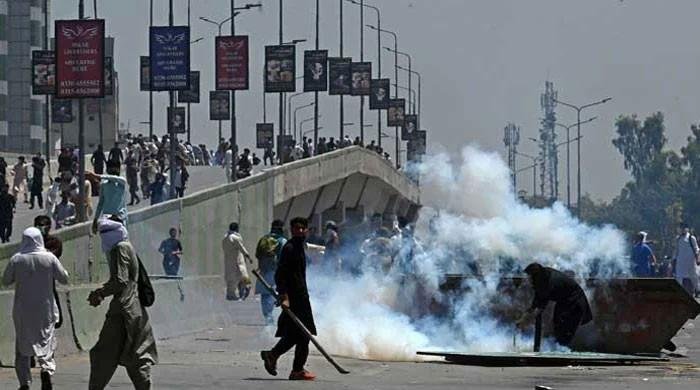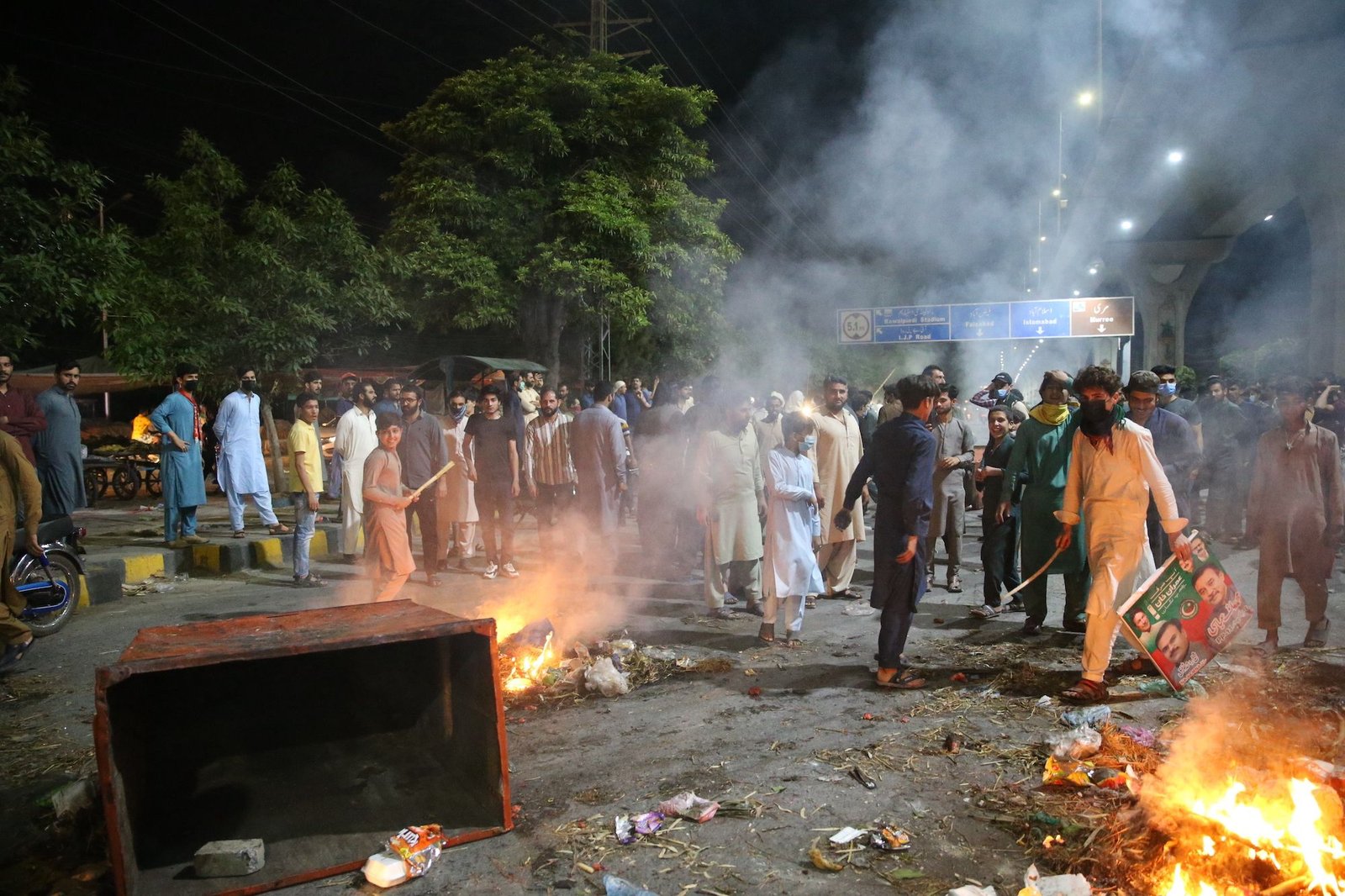Suspension of Military Trials
On Sunday, a petition was filed in the Supreme Court against the military trial of individuals allegedly responsible for the May 9 events. During these events, protesters vandalized state properties and military installations following the arrest of PTI Chairman Imran Khan in a graft case.
The petitioner, Shahid Nawaz, who is the brother of suspect Yasir Nawaz, argued that trying suspects in military courts was “unconstitutional.”
This development coincided with the federal government’s submission of a response to the apex court, stating that civilian trials in military courts have already commenced. A five-member bench of the Supreme Court is scheduled to hear petitions against the trial of civilians involved in the May 9 events in military courts on the following day.

The petitioner expressed concerns that military courts had already initiated the trial of suspects involved in the May 9 violence. Shahid asserted that civilians were being tried in military courts under peaceful circumstances, contradicting constitutional guarantees.
He called for the declaration of the detention of suspects under military authority and the military trial of suspects as “unconstitutional.” Additionally, he urged that the trial of civilians under Section 2(1)(d)(ii) and Section 59’s sub-section 4 of the Army Act should also be declared “unconstitutional.”
Shahid insisted that the trial in the military court should be suspended until the Supreme Court reaches a decision.
Kazakhstan Imposes Ban On Hijab
Meanwhile,
The government of Kazakhstan has decided to impose a ban on the hijab headscarf for students and teachers in schools, citing the need to maintain a secular state. However, this decision has sparked strong reactions within the country, leading to a contentious debate.
The government asserts that this rule is essential to preserve a secular state. Official statistics indicate that nearly 70% of the population in Kazakhstan practices Islam. Proponents of the ban argue that Kazakhstan should maintain its secular nature without favoring any specific religion.










